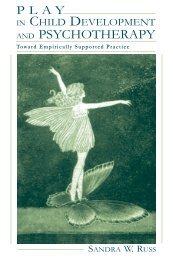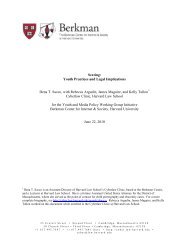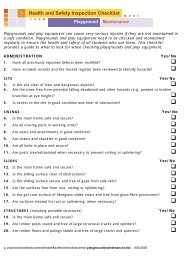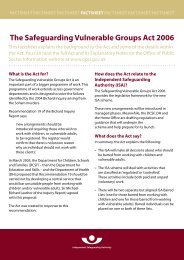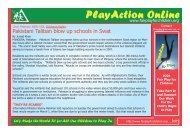Download PDF - Fair Play For Children
Download PDF - Fair Play For Children
Download PDF - Fair Play For Children
You also want an ePaper? Increase the reach of your titles
YUMPU automatically turns print PDFs into web optimized ePapers that Google loves.
Introduction<br />
1.<br />
2.<br />
3.<br />
4.<br />
5.<br />
One of the principles underpinning the <strong>Children</strong>’s Plan is that children and young people<br />
need to enjoy their childhood as well as grow up prepared for adult life. <strong>Play</strong> is something that<br />
children truly enjoy, and which their parents want to see their children enjoy. Government’s<br />
ambition is that all children should enjoy playing in safe environments and live in communities<br />
where play is welcomed.<br />
We use ‘play’ in this document to describe what children and young people do when they<br />
follow their own ideas and interests in their own way and for their own reasons, balancing<br />
fun with a sense of respect for themselves and others. These proposals are meant to improve<br />
outdoor play – to children this means things like going to the park, playing in cul-de-sacs, riding<br />
bikes, and looking for buried treasure 6 .<br />
Government values play for its own sake, as a vital ingredient in a happy childhood, which<br />
is reflected in Article 31 of the United Nation Convention on the Rights of the Child. We<br />
increasingly understand the proven benefits that play brings in terms of a healthy childhood<br />
and the acquisition of some of the key skills that children and young people need as they<br />
become adults and progress in education or into work.<br />
<strong>Play</strong> is not only a vital part of the way children enjoy their childhood, but it is central to all the<br />
Every Child Matters 7 outcomes. <strong>Play</strong> is essential for children’s good physical and mental health<br />
and development. Through taking risks whilst playing they also learn how to manage risk –<br />
helping them to stay safe. <strong>Play</strong> develops learning skills, central to achievement.<br />
Yet there is evidence that opportunities for play – particularly child-led, outdoor play – are<br />
falling. Concerns about safety, the loss of open green space, the poor quality and inaccessibility<br />
of many existing play areas, including for disabled children, and the increasingly structured use<br />
of children’s spare time are all barriers to children engaging in more outdoor play.<br />
6. One of the main messages fed back through the Time to Talk 8 consultation with children and<br />
parents on the <strong>Children</strong>’s Plan was that there are not enough safe, challenging, stimulating<br />
places for children and young people to go, that children’s needs are often ignored in public<br />
6 Plain English Research on <strong>Play</strong>, Sherbert Research for DCSF and COI, 2008.<br />
7 See www.everychildmatters.gov.uk/aims/<br />
8 See www.dcsf.gov.uk/timetotalk<br />
6 <strong>Fair</strong> <strong>Play</strong>: A consultation on the play strategy


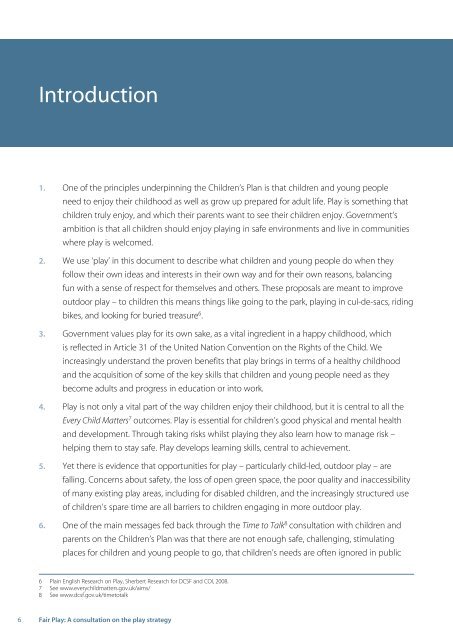


![The Childcare Act 2006 - Notes [Website] - Fair Play For Children](https://img.yumpu.com/50144819/1/184x260/the-childcare-act-2006-notes-website-fair-play-for-children.jpg?quality=85)

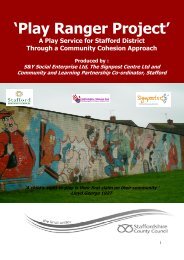


![Bouncy Castles [PDF] - Fair Play For Children](https://img.yumpu.com/45463572/1/184x260/bouncy-castles-pdf-fair-play-for-children.jpg?quality=85)

